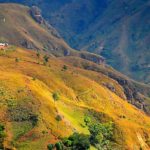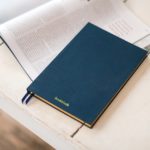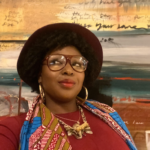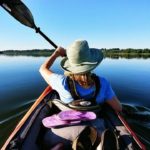Alive and Vulnerable: A Conversation with Author Bernadette Murphy
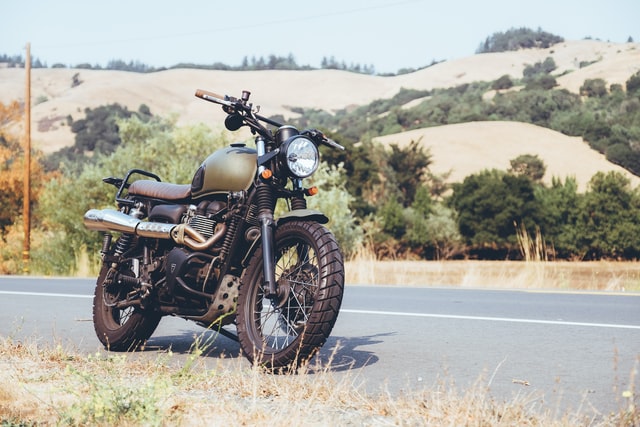
“I want to feel all too alive, to chance encountering the divine. To feel fast and vulnerable, powerful and exposed all at once. I want to truly live while I still have breath within me. But I’m not always sure I’m able,” writes Bernadette Murphy in her latest book, Harley and Me: Embracing Risk on the Road to a More Authentic Life. As readers learn, she is able: she wills herself to be.
In a testament to perseverance, this journalistic memoir weaves scientific research with three years of Murphy’s life, a time she describes as her “coming out” as a risk taker. Inviting the readers to join her on her midlife quest to reclaim — and in some cases, establish — her womanhood, sexuality and thrill-seeking side, we witness Murphy taking an almost 3,000 mile motorcycle trek from Los Angeles to Milwaukee, through torrential rainstorms and the raw beauty of French Polynesia.
Throughout the chronicle, Murphy propels herself from one mental and physical challenge after another, continually defying age and gender expectations in order to test her own endurance.
I chatted with Murphy about exposing vulnerabilities, taking risks, finding strength and the writing process.
First, I want to ask about the book. I can imagine your photos on Facebook: a woman rock-climbing beachside cliffs, winding on her motorcycle through a twisting mountain road, scuba-diving next to massive fish. If I hadn’t read your book and seen the process you go through to push yourself and overcome your fears, I would think it was effortlessly easy. What is the benefit of exposing how you process those testing moments? Why is telling these stories so important?
You’re so right: my FB feed indeed does look like that. And to an outsider, it might look like I have the perfect life, that I have it all figured out, that I am rocking this existence like no-one else. And that would be completely false.
This is a corrosive notion that dramatically separates us from each other, the idea that someone else has it easier than I do, that other people were given some handbook on life that wasn’t shared with me. The truth is this: we all struggle in countless ways — dealing with illness or dementia in our parents, wondering if we’ll ever have the kind of deep intimacy with a partner we’ve long desired, career impasses, concerns with children, health challenges. But the human experience includes struggle and challenge and discomfort and growth. There’s no avoiding it. The only way around is through.
So if I only present a picture of myself as someone who has it all together, there’s no benefit that comes from my own struggles other than what I selfishly gain for myself. “I accomplished XYZ. Aren’t I great?” But if I expose all the difficulties I encountered on the way to accomplishing XYZ, and express appreciation for the people who helped me get there, then my success becomes about something more than just me. Maybe someone else will be encouraged to keep moving forward when challenges arise on her own path. Or maybe someone will ask for help when they realize they don’t have to go it alone. I have benefited momentously from friends and fellow authors who expose themselves and tell me what they’ve gone through. Their experiences help me believe that I, too, can persevere. They give me hope. And by sharing my own struggle with others, I would like to think I repay that gift.
Throughout your journey, you continually put yourself in challenging situations to overcome fear. This gives you confidence and, of course, a good dose of oxytocin. What advice do you have to other women who yearn to do the same?
Start small. You don’t have to set a huge goal and then work like a dog to accomplish it. Take a new path to work. Try a different type of workout. Do something that makes you a little uncomfortable.
When I wanted to build up my lung strength, I couldn’t even run one lap around the local high school track. So I walked half a lap, then ran half a lap. It took months before I could do a 5K. But soon, I was doing 10Ks then half marathons, then full marathons. But for me, it has to start small or I’ll sabotage myself with unattainable goals.
So pick something small. Acknowledge the discomfort and fear. And do it anyway. Then – and this is super important – congratulate yourself on having met that goal. Don’t belittle it. Don’t compare yourself to others. Enjoy the deep satisfaction of accomplishment. It feels great, doesn’t it? Don’t you want more of that feeling? So, come up with the next step in the challenge.
The human experience includes struggle and challenge and discomfort and growth. There’s no avoiding it. The only way around is through.
Because here’s the capital T truth: Life will continue to throw difficulties at us. It never stops. But if I am already challenging myself on an ongoing basis, making appointments to encounter and make peace with what scares me, I will have the muscles – figuratively and literally – to deal with what comes next. I will have built the optimism, self-confidence, and belief I need to get through the next barrier.
What do you hope readers will gain from your book? For young women who have yet to experience the hurdles of life as you have, what do you hope they gain from reading your story?
One lesson that took me a very long time to learn is that it’s okay to do things that I’m not very good at. For most of my life, I limited myself to those things at which I could excel. I hate to look like a beginner, and I hate to not feel proud of myself. But that stance cut me off from a lot of stuff I wanted to do because most people are not good at new things right off the bat. I gave myself permission to try things that I might not be good at, and convinced myself not to take it all so seriously. Just laugh at myself, have fun, and don’t worry about what other people think.
The other element is about risk: it’s good for us! So many of us spend a lifetime trying to mitigate all risk. But sometimes, that’s where the juiciest experiences reside – right next to the thing that scares the pants off of us. I hope readers see the benefit of getting on speaking terms with their deepest fears. When we learn to take calculated, thoughtful risk, it’s amazing how satisfyingly big and meaty our lives become.
Next, I want to ask you about the writing process. Many Pink Pangea readers are aspiring authors. How did you know this was a story that you wanted to tell, and when did you know you wanted to include scientific research to complement your story?
The first time I was able to do figure-eights on blacktop on my motorcycle and felt the feeling of strength and grace that flooded me in that moment, I was so shocked! I never knew I could feel that way, brawny and yet agile and elegant, all in the same moment. And I realized that if I had lived 48 years of my life without knowing that about me, what else did I not know? What other activities or people might I fall in love with?
It’s okay to do things that I’m not very good at. For most of my life, I limited myself to those things at which I could excel.
That’s where the book started, and first, it was just an essay. The scientific research then rose organically from those questions. What is the role risk plays in a person’s life and how does that change over time? How could I have been a scaredy cat for so many years and now I wanted to ride a motorcycle across the country? I looked for answers, mostly, to reassure myself I wasn’t having a full-blown midlife crisis. But the journey into those answers revealed much I needed to know about risk and fear and my relationship with them.
One of my favorite aspects of the book was the contrast between the often extreme physical pain you experienced while motorcycling and the overwhelming benefits this brought you. As a writer, how do you show that tension through your words?
As writers, sometimes it’s easiest to focus on the story we think we’re supposed to tell, the obvious one. But really, everyone already knows the obvious story. Readers are looking for the story behind the story.
To tell that story, I try to focus as much on my physical body. What do my toes feel like in hot leather boots on a 110-degree day? When I’m in emotional pain, how does it manifest in my body? And then, when I break away from the pain and discover the benefits of my hard work, what happens to my shoulders, to my clenched jaw? What does it feel like, physically, when my heart soars? How does joy manifest in my physical being?
Photo forAlive and Vulnerable: A Conversation with Author Bernadette Murphy by Unsplash.



